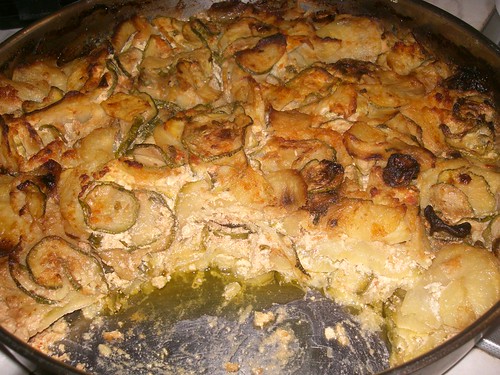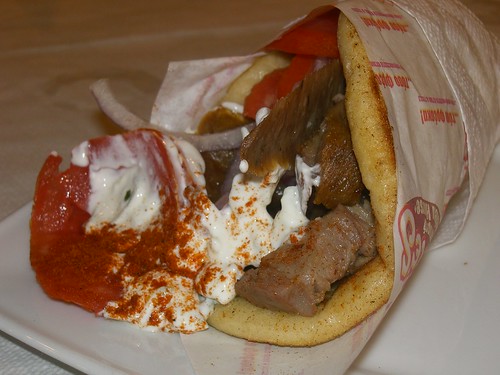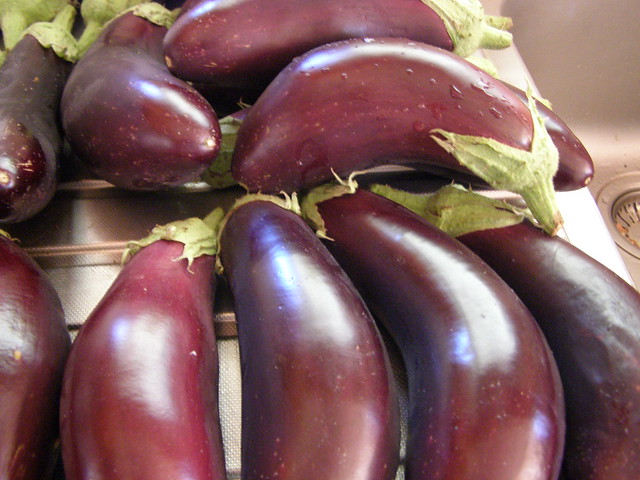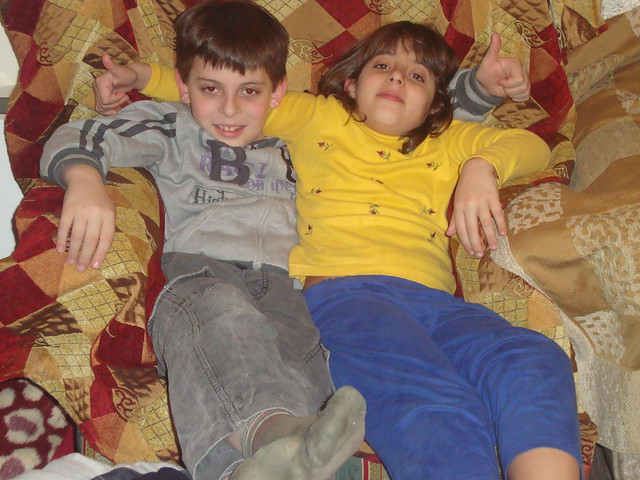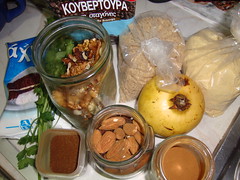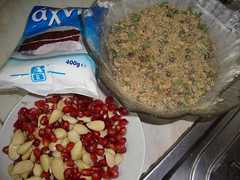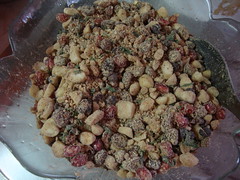I remember many years ago when a food blogger friend of mine from the US told me that she was very careful about the statements she made in her blog because she didn't really want to get her name in the local paper for saying something that stood out too much. I wasn't sure what she meant: unlike her, I really wanted to get in the paper for saying something that stood out.
Today, I got that opportunity; in conjunction with my colleague Yiannis Katsikandarakis, and Nebraskan blogger Shannon Moncure, our article was turned into the main feature of today's issue of the local paper, Haniotika Nea. In Greek newspaper terminology, we made into the σαλόνι = 'salon'; apart from' living room', it also refers to the main feature page in a newspaper, usually found in the middle (the part that holds all the supplements - today, there was a brochure from ΔΙΑΦΑΝΟ).

The article was based on Shannon's account of her experiences while in Greece during a summer school term from the University of Nebraska. The title of the article is based on Shannon's writings: "When I finally let myself go to become one with the Mediterranean".
Here is a translation of all the bits of text that include my name:
1. Maria Verykaki (Ok, somebody got my name wrong, but I don't hold it against them - in a small town, it's preferable to be able to keep a certain level of anonymity), responsible for the Department of Engllish Studies at MAICh,
2. Saturday 24-5-2014: "A visit to the local laiki (street market) with agricultural produce"
Crete is a highly agricultural island. To be exact, Maria, the English teacher at MAICh, who was our guide, explained to us that it is due to this fact that the island felt to a lesser extent the effects of the economic crisis which started in 2008. Small-scale cultivation is an integral part of the life of the inhabitants of the island, which allows the island to be self-sufficient to some extent in terms of food, providing for most of their basic needs.
3. One of the seminars that the Nebraskan students took part in at MAICh was conducted by Maria Verykaki (see above), responsible for the Department of Engllish Studies at MAICh,with the title: "The importance of environment in the sustainability of Cretan society".
Most of the time, we hear about the negative aspects of the crisis, and how people are unable to cope; publicly stating that a certain sector of society has been shielded from the crisis is a pretty bold statement - and it's got my name attached to it.
©All Rights Reserved/Organically cooked. No part of this blog may be reproduced and/or copied by any means without prior consent from Maria Verivaki.
Today, I got that opportunity; in conjunction with my colleague Yiannis Katsikandarakis, and Nebraskan blogger Shannon Moncure, our article was turned into the main feature of today's issue of the local paper, Haniotika Nea. In Greek newspaper terminology, we made into the σαλόνι = 'salon'; apart from' living room', it also refers to the main feature page in a newspaper, usually found in the middle (the part that holds all the supplements - today, there was a brochure from ΔΙΑΦΑΝΟ).

From today's Haniotika Nea
The article was based on Shannon's account of her experiences while in Greece during a summer school term from the University of Nebraska. The title of the article is based on Shannon's writings: "When I finally let myself go to become one with the Mediterranean".
Here is a translation of all the bits of text that include my name:
1. Maria Verykaki (Ok, somebody got my name wrong, but I don't hold it against them - in a small town, it's preferable to be able to keep a certain level of anonymity), responsible for the Department of Engllish Studies at MAICh,
2. Saturday 24-5-2014: "A visit to the local laiki (street market) with agricultural produce"
Crete is a highly agricultural island. To be exact, Maria, the English teacher at MAICh, who was our guide, explained to us that it is due to this fact that the island felt to a lesser extent the effects of the economic crisis which started in 2008. Small-scale cultivation is an integral part of the life of the inhabitants of the island, which allows the island to be self-sufficient to some extent in terms of food, providing for most of their basic needs.
3. One of the seminars that the Nebraskan students took part in at MAICh was conducted by Maria Verykaki (see above), responsible for the Department of Engllish Studies at MAICh,with the title: "The importance of environment in the sustainability of Cretan society".
Most of the time, we hear about the negative aspects of the crisis, and how people are unable to cope; publicly stating that a certain sector of society has been shielded from the crisis is a pretty bold statement - and it's got my name attached to it.
©All Rights Reserved/Organically cooked. No part of this blog may be reproduced and/or copied by any means without prior consent from Maria Verivaki.











